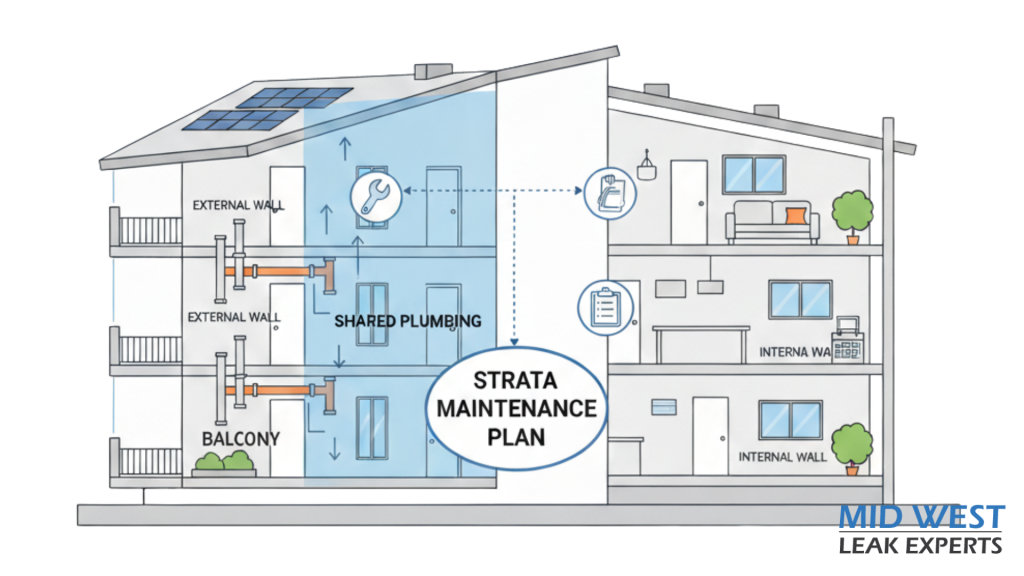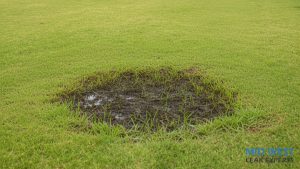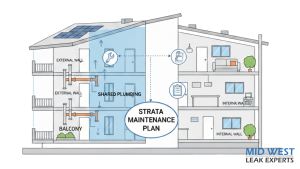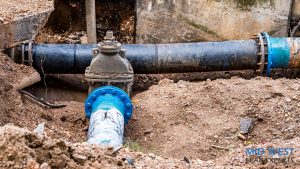What is Strata Maintenance? A Complete Guide for NSW Strata.
Strata maintenance is the ongoing upkeep and repair of common property within a strata scheme. In New South Wales, this is a legal requirement managed by the owners corporation. It covers all shared areas and infrastructure, from the roof and external walls to shared plumbing systems and gardens. Understanding what is strata maintenance is crucial for all lot owners, as it directly impacts the safety, value, and liveability of your property. A well-executed maintenance plan prevents small issues from becoming expensive disasters, ensuring the building remains a secure and pleasant place to live. It is a collective responsibility that protects every owner’s investment.
Understanding Owners Corporation Responsibilities
The owners corporation holds the primary legal duty for the maintenance and repair of all common property. This is a significant part of owners corporation maintenance responsibilities, mandated to ensure the building is safe and functional for all residents and visitors. Failing to properly maintain common property can lead to legal liability, decreased property values, and costly emergency repairs. To effectively manage these duties, the owners corporation must budget for ongoing work and major projects through administrative and capital works funds. According to NSW Fair Trading, these responsibilities are not optional; they are a core function of managing a strata scheme.
Common Property vs. Lot Property
A critical aspect of strata living is distinguishing between common property and individual lot property. Common property includes all areas of the land and building that are not part of an individual owner’s lot. This typically covers structures like roofs, foundations, external walls, and shared infrastructure such as plumbing within common walls, lobbies, driveways, and elevators. The owners corporation is solely responsible for the upkeep of these areas. In contrast, lot property refers to the individual apartment or unit. An owner is generally responsible for maintaining everything within the boundaries of their lot, including internal walls, floor coverings, and personal fixtures. Understanding this division is the first step in correctly assigning maintenance tasks.
Key Maintenance Duties
The scope of owners corporation maintenance responsibilities is extensive and covers all shared aspects of the building and its grounds. A proactive approach is essential for managing these assets effectively. Key duties include:
- Structural Integrity: Regular inspection and repair of the building’s roof, foundations, balconies, windows, and external walls to prevent water ingress and structural failure.
- Plumbing and Drainage: Maintaining all shared pipes, drains, and hot water systems that service multiple lots or are located in common property walls or floors. This is a critical area for preventing widespread water damage.
- Safety Systems: Ensuring fire safety equipment, such as alarms and sprinklers, along with common area lighting and security systems, are fully operational and compliant with Australian standards.
- Common Areas: Upkeep of lobbies, hallways, stairwells, car parks, and pathways, including cleaning, painting, and repairing any damage or wear and tear.
- Shared Facilities: Managing the maintenance of amenities like swimming pools, gyms, lifts, and gardens to ensure they are safe and usable for all residents.

The Importance of Proactive Strata Building Maintenance
Adopting a proactive approach to strata building maintenance is far more effective and economical than simply reacting to problems as they arise. Proactive maintenance involves scheduled inspections, preventative repairs, and long-term planning to address wear and tear before it results in failure. This strategy not only saves the owners corporation significant money over time but also enhances the safety and comfort of all residents. By identifying potential issues early, such as a small roof leak or a deteriorating pipe, you can avoid the catastrophic damage, disruption, and expense that comes with an emergency situation. It is an investment in the building’s future.
Preventing Costly Repairs
The single greatest benefit of proactive maintenance is financial. A minor, undetected water leak inside a common wall can silently cause thousands of dollars in structural damage, mould remediation, and high water bills over months. A scheduled inspection by a specialist using advanced diagnostic tools can identify this leak when it is a simple, inexpensive fix. Deferring maintenance almost always leads to higher costs. For example, replacing a few cracked roof tiles is a minor expense, but waiting until the roof leaks and damages multiple apartments below results in a major, complex, and costly repair project that often requires a special levy from all owners.
Ensuring Safety and Compliance
The owners corporation has a legal duty of care to provide a safe environment for all residents and visitors. A comprehensive strata building maintenance guide should prioritise safety compliance. This includes regular checks of fire systems, ensuring pathways are free of trip hazards, maintaining balcony balustrades, and confirming the structural integrity of car parks and other common areas. Neglecting these duties can lead to accidents, injuries, and potential legal action against the owners corporation. Proactive maintenance is fundamental to mitigating these risks and ensuring the building complies with all relevant building codes and safety regulations in NSW.
Protecting Property Value
A well-maintained building is a valuable asset. Kerb appeal, functional amenities, and a reputation for being well-managed make a strata scheme more attractive to potential buyers and tenants. This directly translates to higher property values and better rental returns for every lot owner. Conversely, a building with peeling paint, cracked pavement, and a history of unresolved maintenance issues will deter buyers and drive down prices. Consistent, proactive maintenance is one of the most effective ways to protect and enhance the long-term value of your investment. It sends a clear message that the property is cared for and managed responsibly.
A Practical Strata Building Maintenance Guide
Effective strata management relies on a structured and forward-thinking approach to maintenance. Simply waiting for things to break is a recipe for financial stress and resident dissatisfaction. A practical strata building maintenance guide involves creating a detailed plan, budgeting accurately for future expenses, and engaging qualified professionals to carry out the work. This systematic process helps the strata committee make informed decisions, ensures transparency for all owners, and keeps the building in optimal condition year after year. It transforms maintenance from a reactive headache into a manageable, predictable aspect of strata governance.
Creating a Maintenance Plan
The cornerstone of good strata maintenance is a comprehensive, long-term maintenance plan, often called a 10-year capital works fund plan. This document forecasts the expected lifespan of major common property assets, such as the roof, lifts, plumbing systems, and exterior paintwork. It schedules regular inspections and outlines when major repairs or replacements will likely be needed. This plan provides a clear roadmap for the strata committee, allowing them to schedule work proactively and avoid the chaos of unexpected major failures. It is a living document that should be reviewed and updated annually to reflect the current condition of the building.
Budgeting for Maintenance
Proper budgeting is essential to fund the maintenance plan. Strata schemes in NSW operate with two main funds. The administrative fund covers day-to-day operational expenses like cleaning, gardening, insurance, and minor repairs. The capital works fund (formerly sinking fund) is a long-term savings account designed to pay for major capital expenditure as outlined in the maintenance plan. By contributing regularly to the capital works fund, owners ensure that money is available for large projects when they become necessary, preventing the need for large, unpopular special levies. Accurate budgeting based on a detailed maintenance plan ensures financial stability for the strata scheme.
Choosing the Right Contractors
The quality of your strata maintenance depends entirely on the quality of the contractors you hire. It is crucial to engage only licensed, insured, and reputable professionals with specific experience in strata properties. For specialised and high-risk areas like strata plumbing NSW, choosing a true expert is non-negotiable. A general plumber may not have the advanced equipment or knowledge to handle complex shared systems. For issues like hidden water leaks, a specialist like Mid West Leak Experts uses non-invasive technology like acoustic sensors to find the problem without causing unnecessary damage to common property, saving the owners corporation time, money, and disruption.
Strata Plumbing NSW: A Critical Maintenance Area
Of all the systems within a strata complex, plumbing is one of the most critical and complex. A single plumbing failure can simultaneously affect multiple lots, causing widespread damage and distress. Effective strata plumbing NSW management is a cornerstone of any good maintenance plan, as water-related issues are among the most common and costly problems faced by owners corporations. From shared hot water systems to the network of pipes hidden within walls and floors, these systems require specialised attention and preventative care to function reliably and protect the building from the devastating effects of water damage.
Common Strata Plumbing Issues
Strata properties face a unique set of plumbing challenges due to the interconnected nature of the building. Issues that might be minor in a standalone house can quickly escalate into major problems affecting numerous residents. A proactive maintenance plan must account for these common vulnerabilities. Key issues to watch for include:
- Blocked Drains: A blockage in a central sewer or stormwater stack can cause sewage or wastewater to back up into multiple ground-floor units, creating a serious health hazard.
- Pipe Leaks in Common Walls: Leaks from water supply or drainage pipes located within common property walls, ceilings, or floors can go undetected for long periods, causing structural rot, mould, and damage to adjacent lots.
- Hot Water System Failures: The breakdown of a central hot water plant can leave the entire building without hot water, requiring an urgent and expensive emergency response.
- Roof and Balcony Leaks: Failed waterproofing membranes on roofs and balconies are a primary source of water ingress, leading to ceiling damage, mould, and concrete spalling in the units below.
- Water Hammer and Noisy Pipes: Persistent noise from pipes can indicate pressure issues or insecure fittings, which can eventually lead to pipe failure and bursts.

The Hidden Danger of Water Leaks
The most insidious threat in strata plumbing is the hidden leak. A slow drip from a pipe concealed within a concrete slab or wall cavity can release a significant amount of water over time. This moisture gets trapped, creating the perfect environment for toxic mould to grow, which can pose serious health risks to residents. Furthermore, persistent moisture can cause concrete cancer by corroding the steel reinforcement within slabs, compromise timber structural elements, and create a fire hazard if it comes into contact with electrical wiring. The cost of remediating this type of damage is often astronomical compared to the cost of finding and fixing the original leak early.
Why Specialist Leak Detection is Essential
When a leak is suspected, the traditional approach of cutting holes in walls and floors to find the source is destructive, costly, and inefficient. This is why specialist leak detection in Orange and surrounding areas is essential for any responsible owners corporation. At Mid West Leak Experts, we use cutting-edge, non-invasive technology to pinpoint the exact location of a leak without any guesswork or destruction. Our technicians use advanced acoustic sensors and ground microphones to listen for the distinct sound of water escaping a pressurised pipe. This allows us to locate the problem with surgical precision, saving the strata scheme thousands of dollars in unnecessary demolition and repair costs. It is the smartest, fastest, and most cost-effective solution for protecting your building.
Navigating Emergency Strata Repairs
Even with the most diligent maintenance plan, emergencies can and do happen. A burst pipe, a major roof leak during a storm, or a complete failure of the hot water system requires immediate and decisive action. How a strata committee and its manager respond in these critical moments can significantly impact the extent of the damage, the cost of repairs, and the well-being of residents. Having a clear emergency response plan and a trusted network of emergency contractors is a non-negotiable part of responsible strata management. This preparation ensures a calm, efficient response in a high-stress situation.
What Constitutes a Plumbing Emergency?
It is important for residents and strata managers to understand what qualifies as a genuine emergency requiring an immediate after-hours call-out. A true plumbing emergency typically involves a situation that poses an immediate threat to property or safety. This includes major water leaks that cannot be isolated, such as a burst pipe in a wall or ceiling, a complete sewage backup affecting habitable areas, the total loss of water supply to the building, or a gas leak from a hot water system. A dripping tap, while annoying, is not an emergency. Clear guidelines help prevent unnecessary and expensive after-hours service calls.
Your Emergency Response Plan
An effective emergency response plan should be established long before a crisis occurs. This plan should include a list of pre-approved, 24/7 emergency contractors for essential services like plumbing and electrical. It must also contain clear instructions for the strata manager and committee on who has the authority to approve emergency expenditure. Critically, the plan should be communicated to all residents, with clear information on who to contact in an emergency and the location of main water and gas shut-off valves. A well-prepared plan minimises panic and ensures a swift, coordinated response to limit damage.

How Mid West Leak Experts Can Help
Mid West Leak Experts is the trusted emergency plumbing partner for strata schemes throughout Central West NSW. Our team is on call 24/7 to respond to urgent situations. We have the expertise and advanced diagnostic equipment to quickly locate the source of the problem, even in complex buildings, and take immediate action to mitigate the damage. Whether it is a burst main or a critical blockage, our priority is to secure the site and implement a lasting repair. For any urgent plumbing emergency in Orange, Bathurst, or Mudgee, do not hesitate. Call Us at 0422-125-707 for immediate, expert assistance ASAP.
Partnering with a Strata Maintenance Expert
Managing the complex maintenance needs of a strata property requires a strong partnership between the owners corporation and its chosen contractors. Building a long-term relationship with a reliable, expert tradesperson, especially for critical services like plumbing, provides immense value. A trusted partner understands the unique layout and history of your building, leading to faster diagnostics, more effective repairs, and better advice for long-term planning. Mid West Leak Experts is dedicated to being that trusted partner for strata communities across Central West NSW, offering specialised services that protect your property and provide peace of mind.
The Benefits of a Long-Term Relationship
When you work with the same specialist contractor over time, they develop an intimate knowledge of your building’s infrastructure. They know the history of past repairs, the location of key pipes and access points, and the potential weak spots in the system. This familiarity saves valuable time and money during both routine maintenance and emergency call-outs. A long-term partnership fosters trust and clear communication, making the entire maintenance process smoother and more efficient for the strata manager and committee. It transforms the relationship from a simple transaction to a collaborative effort to preserve the building’s value.
Our Commitment to Central West NSW Strata
Mid West Leak Experts is a local company deeply committed to serving the strata communities in our region. We provide specialised plumbing and advanced leak detection services to Orange, Bathurst, Mudgee, Lithgow, Cowra, Parkes, Forbes, and all surrounding areas of Central NSW. We understand the specific challenges faced by local properties and pride ourselves on delivering reliable, high-quality workmanship. Our focus is on providing lasting solutions that address the root cause of a problem, not just the symptoms. We are your local experts in protecting strata properties from the costly threat of water damage.
Get a Comprehensive Plumbing Assessment
The best way to manage your strata plumbing is to get ahead of potential problems. We offer comprehensive plumbing assessments for strata schemes. Our expert technicians can inspect your building’s key plumbing infrastructure, using non-invasive technology to identify hidden leaks, corrosion, or other risks before they escalate into emergencies. This proactive service provides your owners corporation with a clear picture of your plumbing health and allows you to plan and budget for future work effectively.
Protect your investment and prevent future disasters. Enquire Now to schedule a comprehensive assessment for your property.




